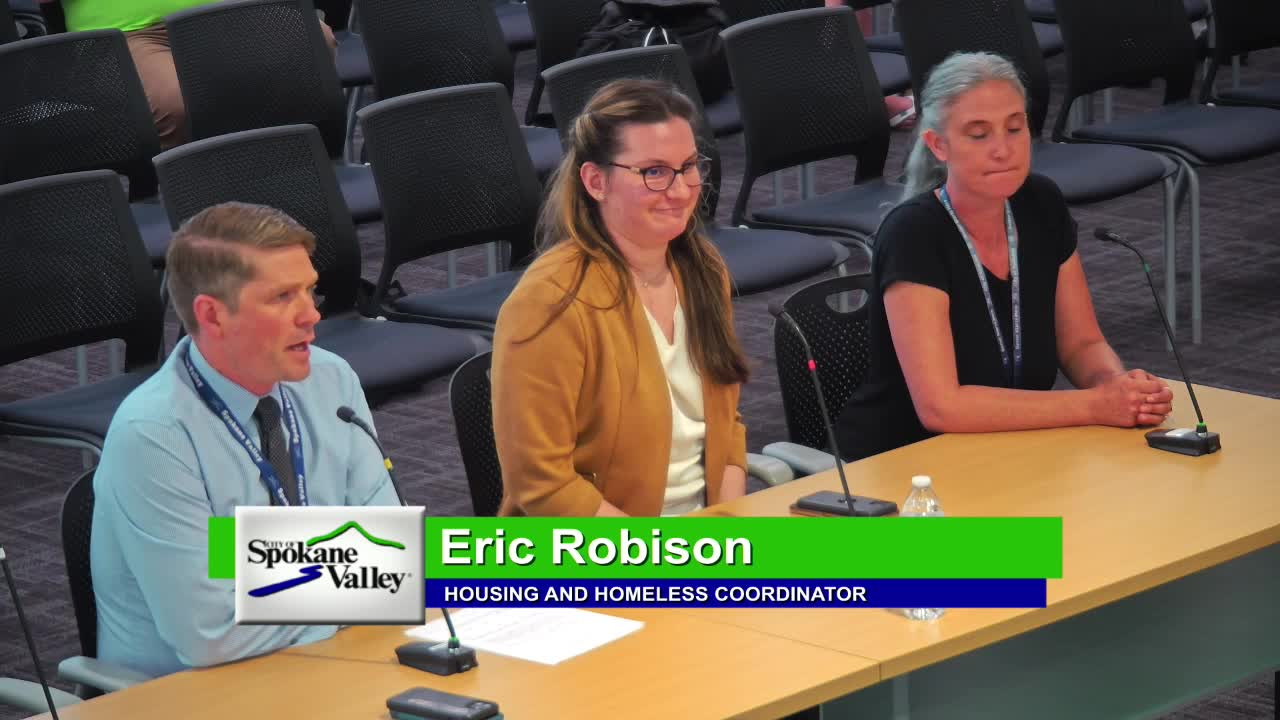City of Spokane Presents Findings from 2025 Point in Time Count on Homelessness
July 29, 2025 | Spokane Valley, Spokane County, Washington
This article was created by AI summarizing key points discussed. AI makes mistakes, so for full details and context, please refer to the video of the full meeting. Please report any errors so we can fix them. Report an error »

The Spokane Valley Council meeting held on July 29, 2025, focused on the annual Point in Time (PIT) count, a crucial assessment of homelessness in the region. The meeting began with an introduction to the Continuum of Care (CoC), which oversees federal funds related to homelessness. Amanda, a city staff member, presented the findings from the 2025 PIT count, which took place on January 22, 2025.
The PIT count is mandated by the U.S. Department of Housing and Urban Development (HUD) and aims to capture the number of individuals experiencing homelessness on a single night. This year, the count revealed that 1,806 individuals were homeless, with 617 classified as unsheltered and 886 in emergency shelters. The presentation highlighted the collaborative effort required for the count, involving various community partners and volunteers.
Amanda detailed the demographics of those counted, noting that the majority were white and predominantly male. The data also indicated a significant presence of veterans among the homeless population, primarily residing in emergency shelters. The meeting emphasized the importance of understanding the nuances of homelessness, including the distinction between the PIT count and other data sources, such as the McKinney-Vento Act, which tracks homeless children and youth.
Council members raised questions regarding the accuracy of the count, particularly in areas like the Appleway Trail, where encampments were reported but not reflected in the data. Amanda acknowledged the challenges of data collection and the need for more volunteers to ensure comprehensive coverage during the count.
The discussion also touched on the utilization of emergency shelter beds, which stood at approximately 83% for year-round facilities. Council members expressed concerns about the implications of these numbers for federal funding and the overall effectiveness of the homeless response system. The meeting concluded with a recognition of the ongoing need for diverse interventions beyond emergency sheltering, including transitional and permanent housing solutions.
Overall, the Spokane Valley Council meeting underscored the complexities of addressing homelessness in the community and the importance of accurate data collection to inform policy and resource allocation. The council plans to continue its partnership with the CoC and other stakeholders to enhance the effectiveness of homelessness services in the region.
The PIT count is mandated by the U.S. Department of Housing and Urban Development (HUD) and aims to capture the number of individuals experiencing homelessness on a single night. This year, the count revealed that 1,806 individuals were homeless, with 617 classified as unsheltered and 886 in emergency shelters. The presentation highlighted the collaborative effort required for the count, involving various community partners and volunteers.
Amanda detailed the demographics of those counted, noting that the majority were white and predominantly male. The data also indicated a significant presence of veterans among the homeless population, primarily residing in emergency shelters. The meeting emphasized the importance of understanding the nuances of homelessness, including the distinction between the PIT count and other data sources, such as the McKinney-Vento Act, which tracks homeless children and youth.
Council members raised questions regarding the accuracy of the count, particularly in areas like the Appleway Trail, where encampments were reported but not reflected in the data. Amanda acknowledged the challenges of data collection and the need for more volunteers to ensure comprehensive coverage during the count.
The discussion also touched on the utilization of emergency shelter beds, which stood at approximately 83% for year-round facilities. Council members expressed concerns about the implications of these numbers for federal funding and the overall effectiveness of the homeless response system. The meeting concluded with a recognition of the ongoing need for diverse interventions beyond emergency sheltering, including transitional and permanent housing solutions.
Overall, the Spokane Valley Council meeting underscored the complexities of addressing homelessness in the community and the importance of accurate data collection to inform policy and resource allocation. The council plans to continue its partnership with the CoC and other stakeholders to enhance the effectiveness of homelessness services in the region.
View full meeting
This article is based on a recent meeting—watch the full video and explore the complete transcript for deeper insights into the discussion.
View full meeting
